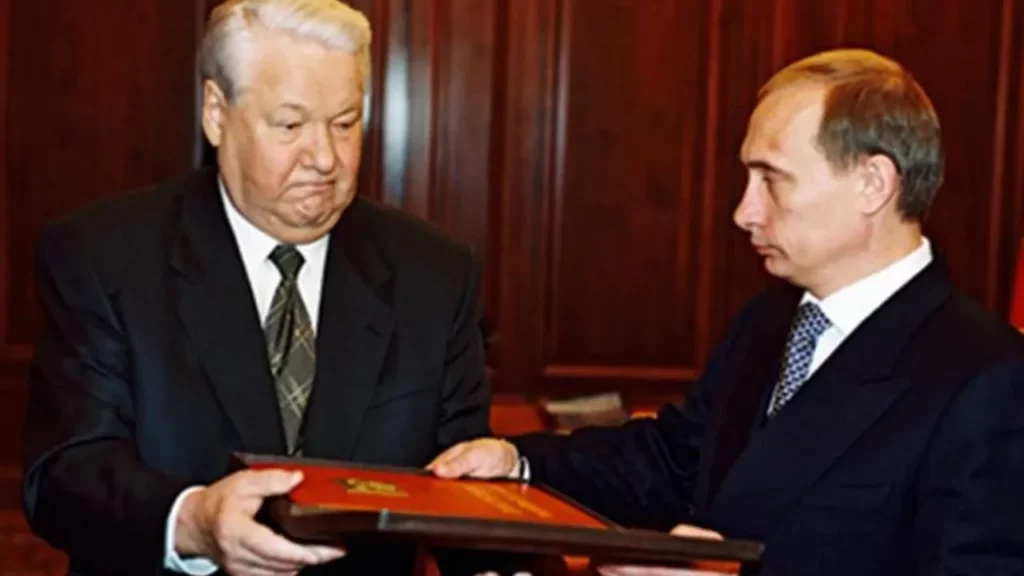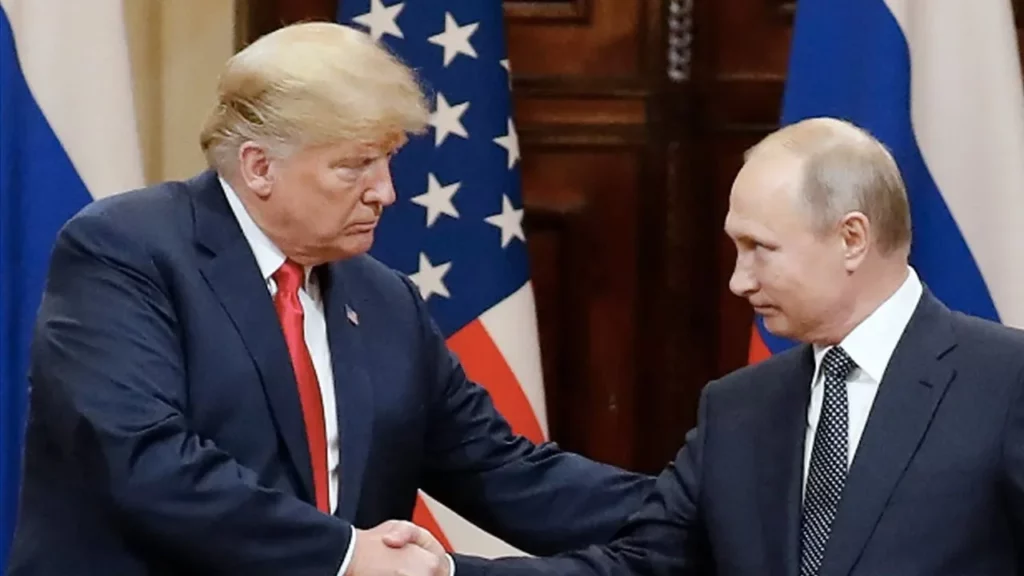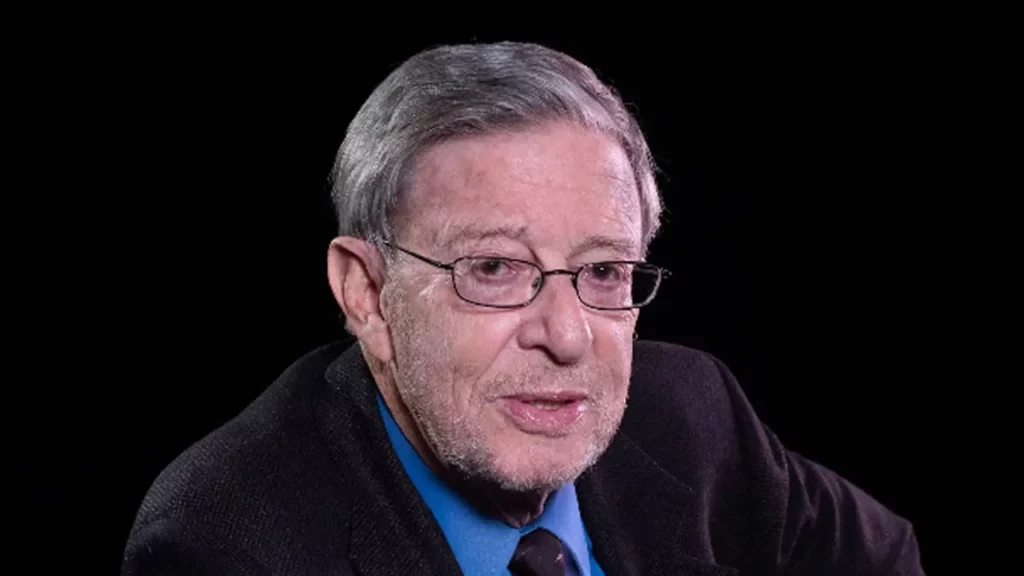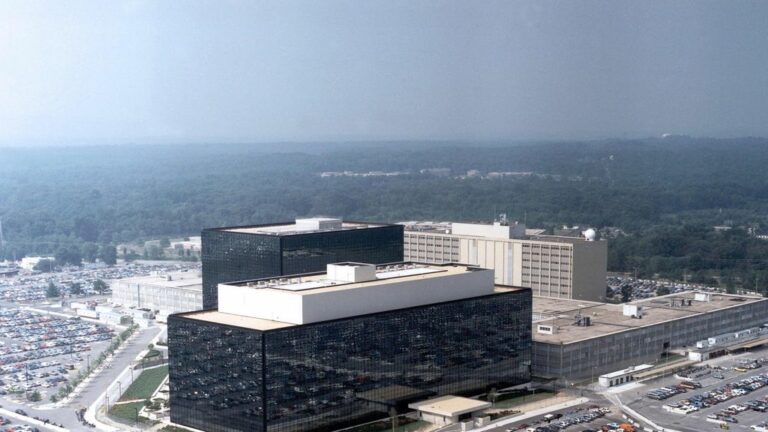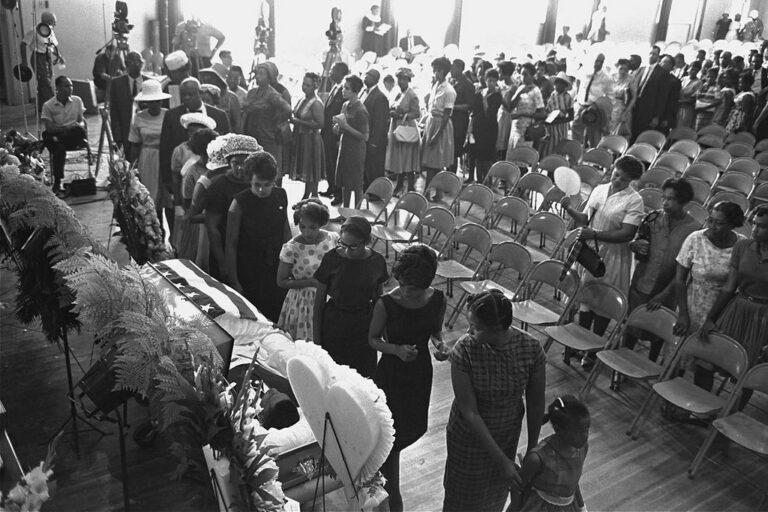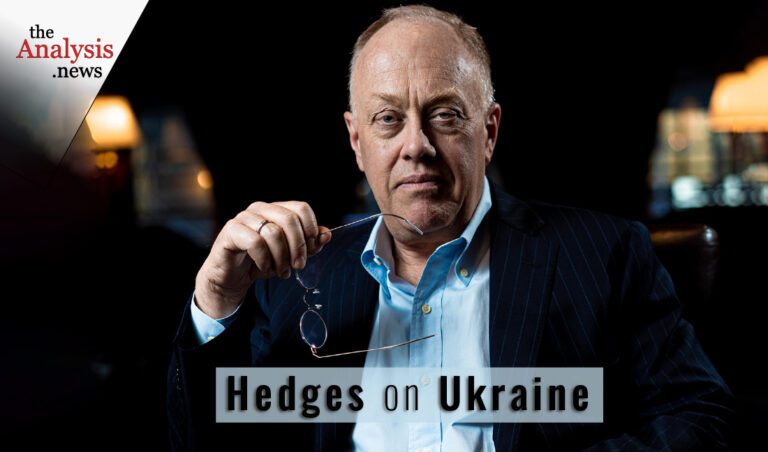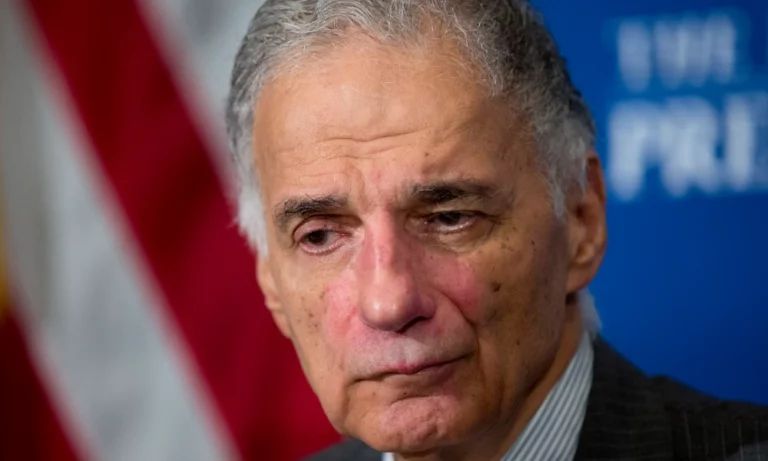This is an episode of Reality Asserts Itself, produced April 16, 2019, with the late Stephen Cohen. “The claim that Russia attacked America during the 2016 presidential election is both exceedingly dangerous and a complete falsehood,” says Stephen Cohen.
STORY TRANSCRIPT
PAUL JAY: Welcome to Reality Asserts Itself on The Real News Network. And I’m Paul Jay.
People that follow this show know I particularly like to interview people that stick their neck out and stick to their guns for what they believe in, what they’re fighting for. And our next guest is someone who’s done both of those things under a lot of pressure. So this is the story, to begin with, of Stephen Cohen. Stephen is emeritus professor of politics at Princeton University, professor emeritus of Russian studies and history at New York University, and his most recent book: War with Russia? From Putin and Ukraine to Trump and Russia. Thanks for joining us again.
STEPHEN COHEN: Thanks, Paul.
PAUL JAY: So a lot of people were rather happy with Barr’s summary of the Mueller report. And as we sit here talking today we haven’t seen the Mueller report, it hasn’t been given to Congress yet, and it may even happen tomorrow. We don’t know. And it may change what we think of what I’m about to ask, but I don’t think it’s going to change too much about what I’m going to ask.
Obviously President Trump’s pretty happy so far with the no collusion argument. And that was pretty clear from what Mueller said; what Barr says Mueller said. There’s a quote from Mueller in Barr’s summary. But I thought some people who’ve been critical of Russiagate were a little bit too happy about this, because the more important, I thought, substance of what Mueller says is that, in fact, Russia did interfere in the elections. And he takes it very seriously. And the more important part of Russiagate narrative, I don’t think, was ever the collusion part. In fact, we all knew Mueller was not heading down any big collusion road anyway, because as you pointed out in one of your interviews, I don’t know if it was Larry King, you know, you could see from how other people were being charged, Manafort and others, there was no breadcrumb leading you to a collusion argument with Trump. The real problem is the underlying idea is that this is an existential threat to American democracy, and Mueller more or less confirms that.
And I thought people shouldn’t be so happy about that part of it, because the substantial argument–and I’ll quote you again–is that whatever they did it was low-level stuff. It happens all the time between these countries. They all interfere in each other’s elections. And then it gets raised to the existential level. That’s the problem. And Mueller more or less confirms that.
STEPHEN COHEN: You are absolutely right, only not right enough. This expression, which has become a truth in the media and for too many politicians that “Russia attacked America during the 2016 presidential election” is both exceedingly dangerous and a complete falsehood. Why is it dangerous? Because if a great power is attacked, that great power has to eventually attack back, counterattack. This is a ticking time bomb in relations with Russia. No attack on America occurred in 2016. I was awake, present, and observant. I saw no missiles descending on our country. No Russian paratroopers. No Russian submarines. No Russian combat planes. Nothing. It’s a complete fiction.
It’s a form, I guess, of hyperbole. Did the Russians meddle? Some Russians? I don’t know. I’m not even sure the Kremlin knew anything about it. But the Russiagate story is that Putin decided he wanted Trump to be in the White House. So he attacked American elections and rigged it. So Trump is now in the White House. I don’t know how many people actually believe this. But too many continue to say it, including the New York Times, the Washington Post, CNN, MSNBC. Too many influential news outlets are putting out an exceedingly dangerous fiction which is a form of warmongering. It didn’t happen, but they won’t let go of it.
So I agree with you. There was no attack on America. But they’re keeping this up. Was there meddling? As you say, sure. So let’s do the–briefly–the history of Russian-American meddling in each other’s politics. Where would you like to begin? Should we begin with the American intervention in the Russian Civil War in 1918? I mean, Wilson sent about 8,000 American troops to try to help overthrow the new red Communist government. Was that meddling? Really, is it meddling? You tell me. Sounds like meddling to me.
PAUL JAY: It’s armed intervention.
STEPHEN COHEN: It’s armed intervention. All right. What about, to leap forward, 1996? I was in Moscow, I observed it. Then-president of post-Soviet Russia Boris Yeltsin stood no chance of being reelected. No chance whatsoever. He was like 3 percent in the polls. But the Clinton administration desperately needed to keep him in power. So they meddled, big time. They sent electoral experts–not unlike, by the way, Paul Manafort. Guys who make a living advising other countries about how to rig elections. We’ve got lots of them who do this for big money. So they set up in the presidential hotel. You could see them. Clinton arranged, I think, it was $10 billion, I may be wrong there, IMF loan to Yeltsin so Yeltsin could pay pensions and salaries he hadn’t paid for five years. I mean, we did the whole–I mean this was a massive intervention into Russia’s election. And basically we kept Russia, Yeltsin, in the presidency. Is that meddling? Is that meddling?
PAUL JAY: Yeah, of course.
STEPHEN COHEN: What happened with Russian meddling in 2016, compared to the kind of meddling both sides have done, was jaywalking. The only reason it became one of the worst scandals, and I think most damaging in American history, because of the loathing for Trump and because the Clinton people couldn’t accept that she was defeated fair and square. So they made up a story. You know, there’s this book Shattered which tells about how they sat around and said we’ll blame it on the Russians. However, it’s exceedingly unpatriotic. It’s warmongering. It’s damaging our institutions of the presidency.
I mean, if it’s true–for example, let’s say it’s true that the Kremlin can put Trump in the White House. Then evidently our electoral system in this country is not reliable. And why not a governor, or a senator, or a member of the Congress that Putin likes? And what about the next one? I think it’s going to erode confidence in our electoral system on the part of American voters. And what about the presidency itself? I mean, people actually say that a Kremlin puppet sits in the presidency. Do they think that the damage done to the institution of the presidency is going to end when Trump leaves? And do they think Republicans aren’t going to do something similar to the next Democratic president?
And the media’s scandalous coverage of this, abandoning their own standards. I mean, you don’t get your virginity back quite that easily. I mean, they’ve got a lot to atone for, but at the moment they’re not even prepared to say they did anything wrong. Just the other day the heads of these–CNN, the executive editor of the New York Times and the Washington Post–all said they thought their coverage of Russiagate had been great. I mean, really? Really? I mean, that’s like a brain surgeon missing cancer, and then saying he thought he did a good job. I mean, it’s preposterous.
So we have a major problem here. And the myth–there was no Russian attack. The Russians meddled. Mainly what made the meddling different from the kind of meddling that went on, for example, when there were Russian-backed American communist parties, for example, in this country, is social media. It was a social media thing.
And a final point. Let’s say that the Russians–they didn’t–launched a major social media attack to distort the thinking of American voters, and were successful. Because that’s one of the premises, right? People are saying that, right?
PAUL JAY: Yeah.
STEPHEN COHEN: What does that say for American voters? What contempt people have for American voters. So-called American Democrats have contempt for American voters. And now what are they doing? They’re out busy censoring social media so that we won’t get any information that might disorient an American voter. You can’t–if you don’t believe that the electorate will reach a rational decision in voting by whatever interests individual voters have, you’re not a democrat. I don’t mean a member of the Democratic Party. You’re not a democratic person. If you don’t believe in voters you can’t be a democratic person. Then you’re an authoritarian.
PAUL JAY: The story that got completely lost as they focused on low-level meddling that was mostly–that I think anyone can determine rather ineffective–was the Cambridge Analytica story, and Bannon, and the use of troll farms, American-controlled troll farms, to do this targeted social media manipulation. And that’s out there, including an arm of Cambridge Analytica which helped shape the Brexit vote in the United Kingdom. And the role of Robert Mercer, who funded Bannon and Kellyanne Conway and originally backed Cruz, and then helped create Trump as president, I mean, that’s the real story of the Trump presidency. Not this low-level meddling. And they’ve never really told that story in mainstream media. We did a whole documentary on it on The Real News. This whole thing’s been lost about the real kind of sinister dark side to the 2016 elections.
STEPHEN COHEN: What worries me more, though, is the way Russiagate, Russiagaters, the zealots of Russiagate, have criminalized contacts with Russia. I think that this Clinton organization–what’s it called, Center for American Progress, or something, CAP, which has a website called Thought Progress or something–has some posted 150 Trump-related contacts with Russia. I mean, I’ve had most of those contacts with Russia. I mean, I’ve had contacts with Russian intelligence agents. One was a good friend of mine. Five or six of them I worked with in a historical archive, and we did smoking breaks and lunch breaks together, and we talked. I mean, I’ve had all sorts of contacts in my nearly 50 years of dealing with Russia. There was a time when contacts were supposed to be good because it was a way of understanding and avoiding conflict. Part of detente. Part of diplomacy. But Russiagate, the allegations–and I don’t believe any of them, by the way–the allegations have criminalized contacts.
Incidentally, as we talk, this young Russian woman, Marina Butina–sometimes pronounced here BuTIna, but it’s BUtina, B-U-T-I-N-A–has been sitting in an American prison for more than six months, most of it in solitary, for doing nothing other than what many Americans do in Russia, and that is go around talking about how good the American political system is to Russia, Russians. She went around bragging on Putin and the Russian political system here. For that she’s been kept in prison, and was, as Russians say, finally broken. Literally. That’s how Russians break people. They lock you away to you confess. We call confession a plea. So she–and she’s still in prison, even though she pled.
What did she plead guilty to? Coming here and advocating Russian perspectives without registering as a foreign agent. This is a Soviet practice, Paul. One of the things that worries me is that Russiagate has generated too many Soviet-style practices by American authorities. The use of informers. People who were sent to inform on members of Trump’s team, like Papadopoulos, for example. Holding people’s families hostage. I mean, Mueller held General Flynn’s son hostage, essentially, until Flynn pled. And Flynn never should have pled guilty. Never. In fact, he said the other day he regretted it.
Let’s talk about Flynn, for example, to see how bogus this is. Flynn was taped, as he knew he would be, making contact after Trump was elected, before Trump came President, with the Russian ambassador, correct? That was how the story began.
PAUL JAY: And they had to know they were being listened to.
STEPHEN COHEN: Of course they [inaudible].
PAUL JAY: Or he should have.
STEPHEN COHEN: Well, so you would say if he knew he was being listened to, why would he go forward and have this meeting, or discussions, with the Russian ambassador? Because Trump had told him to do it. And the reason is very simple to anyone who knows even a little history. At least since Nixon–maybe since Eisenhower and Kennedy–but at least since Nixon, every American president-elect has made a so-called back channel connection with the Russians, with the Kremlin, before taking office. End of story. And we know–I mean, Kissinger did it for Nixon.
PAUL JAY: But Nixon did it with the North Vietnamese, and Johnson called it treason.
STEPHEN COHEN: I don’t care. The point of it is it’s become traditional standard practice for the president-elect to reach out to the Russians to say basically chill out, we’re going to discuss everything. I mean, you got to remember what happened. I mean, this was dangerous. Obama, to his eternal disgrace, threatened the Russians with a cyberattack. He threatened them. He said we’ve implanted in your infrastructure some kind of cyber thing.
PAUL JAY: And passed sanctions.
STEPHEN COHEN: But forget the sanctions. Forget the sanctions. He threatened them with a secret attack on their infrastructure. Did it mean their medical system? Did it mean their banking system? Did it mean their nuclear control system? And then the nitwit Vice President–Obama’s–goes out and tells jokes about it on late night TV. Yeah, hey, we got him. What kind of behavior is this?
So I think Trump did absolutely the right thing. He told General Flynn, after Obama had made this reckless statement, but after Trump was elected, but not yet president, told Flynn, go tell the Russians not to overreact to what Obama said. Don’t do anything crazy. We’ll sort this out when I take office. I personally am grateful he did that, because there were people in Moscow arguing to Putin that they had to wage some kind of counterattack first. I mean, this was a very dangerous moment that Obama created, unnoticed in this country. Unreported on.
But not only was it the tradition that the president-elect made contact with the Russians. Backdoor. Everyone had done it. But in this case it was essential, because the crazies in Moscow were urging Putin to do something based on what Obama had said. By the way, who’s vanished. On the question of Russiagate, Obama has disappeared himself. I mean Russiagate began on Obama’s watch as president. You’d think he’d have something to say. He hadn’t said a word.
PAUL JAY: But let me counter. I mean, I think the sanctions Obama put on Russia for Russia’s meddling in the U.S. elections was uncalled for; aggressive, and so on. And a continuation of a bunch of aggressive policy. But their argument is Obama was the president, and the sanctions had been implemented. And Trump was saying to Putin, don’t worry, we’re going to get rid of them.
STEPHEN COHEN: No there’s no record. This is-
PAUL JAY: I thought that was Flynn’s conversation.
STEPHEN COHEN: No. No. What Flynn told Kislyak, so far as we know, I haven’t heard the tape, was do not overreact to this statement by Obama that your infrastructure is going to be attacked, and we will discuss everything, maybe he said including sanctions, when Trump takes the White House.
Now, let’s back up a minute. Why shouldn’t we discuss sanctions? The logic–I don’t believe in sanctions. They’re road rage. I mean, as we talk, a few nitwit senators are up on the Hill trying to think up some new sanctions. And if you ask them what they’re sanctioning Russia for today, they couldn’t tell you. Everything. In fact, they do tell you. It’s called for Putin’s malign behavior in the world. It’s not about Crimea anymore. It’s not about voter interference. It’s just basically he’s a malign character, and you can’t have too many sanctions.
Sanctions are road rage. When you don’t have a real policy, you do sanctions. But what’s the logic of the sanctions? The sanction is we put this punishment on you. But when you change your behavior we will remove the punishment. Isn’t that what we say with sanctions? Therefore sanctions have to be discussed if you’re going to have diplomacy. So I would expect an American president to say to the Kremlin we need to have a lot of discussions, including the discussion of sanctions. The ones we’ve imposed.
Actually, by now, depending on what comes next, I don’t think the Kremlin cares very much. They’ve coped very nicely with the sanctions. Though it’s hurting their ability to roll over their loans with Western banks, it’s true. But generally speaking, they’ve managed. And Europe wants the sanctions ended, because it’s hurt European manufacturers, I think there’s 9,000 German firms that were or are making a profit in Russia. It’s hurt European–we have almost no trade with Russia, the United States. Sanctions is–hurting Europe.
PAUL JAY: Well, let’s get back to Flynn. How could he not know that’s being listened to? And I guess they assume that this was not abnormal for an incoming president to have a conversation like this.
STEPHEN COHEN: Flynn was a professional intelligence officer. Let’s repeat that. A professional intelligence officer. He knew everybody was listened to. It didn’t bother him. The president had told him to have conversations with the Russian ambassador. There was a tradition of doing this. He had nothing to hide.
PAUL JAY: OK. There’s a part of this that I don’t think we’re going to agree on, and we’re going to talk about that in the next-
STEPHEN COHEN: I don’t even know you were disagreeing with me. Those are just facts I gave you.
PAUL JAY: I didn’t disagree up until this point. We might agree on something and then disagree in the next segment. So please join us for the next segment of our series of interviews with Stephen Cohen.

